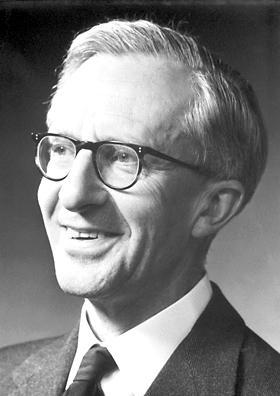James Meade (James Edward Meade)

James Meade made lecturer at Hertford College, Oxford in 1931 and continued until 1937. Meade along with young enthusiasts such as Roy Harrod, Henry Phelps Brown, Charlie Hitch, Robert Hall, Lindley Fraser, Maurice Allen and Eric Hargreaves, who was his old tutor at Oriel College, started the concept of teaching economics as a regular subject for examination which was relatively new at Oxford. Meade was assigned with the responsibility of teaching the whole subject of economic theory. The economics of mass-unemployment and international economics interested Meade in particular. At that time Oxford had a really strong branch of the League of Nations Union with Gilbert Murray as its chairman and Margaret Wilson as its secretary who eventually married Meade. Meade made the member of the economics section of the League of Nations in Geneva in 1937. He worked as the main editor of the journal “World Economic Survey” and published the 17th and the 18th editions. In April 1940 James Meade was forced to leave Geneva for England with his family of three children because of the war. He became a member of the Economic Section of the War Cabinet Secretariat in England and remained member until 1947 rising to the post of Director in 1946. Meade was joined by Lionel Robbins and Keynes and together they used the section to solve everyday economic problems ranging from the rationing system to the pricing policy of nationalized companies. Meade became the professor of trade at London School of Economics in 1947 where the Economics department was headed by Lionel Robbins. While he was in Oxford, Meade had written a short textbook titled “An Introduction to Economic Analysis and Policy. Meade believed it was time to rewrite the book while teaching international economics, more precisely the theory of international economic policy. It slowly cultivated into Meade’s two books, The Balance of Payments (1951) and Trade and Welfare (1955).
The first volume The Balance of Payments stresses the fact that for each of its policy objectives, the government requires a policy tool. The second volume Trade and Welfare deals with conditions under which free trade makes a country better off and conditions under which it does not. Meade concluded that, contrary to previous beliefs, if a country was already protecting one of its markets from international competition, further protection of another market could be “second best.” That is, although the ideal would be to eliminate all trade barriers, if for some reason this was not feasible, then adding a carefully chosen dose of protectionism could improve the nation’s economic well-being. The two books took James Meade a decade to complete, however according to him they still did not cover the entire field of international economic policy since he had given less attention to the issue of international aspects of economic growth or dynamic imbalance. Despite his words, Meade shared the Nobel Prize in Economics along with Bertil Ohlin in 1977.
In 1957 Meade moved from London to the chair of political economy in Cambridge, which he held until 1967, after which he resigned to become a senior research fellow of Christ’s College, Cambridge. Meade left the fellowship at the retirement age in 1974. During this time Meade started thinking about writing one or two volumes on the domestic aspects of economic theory and policy. He successfully wrote four volumes in this series namely The Stationary Economy, The Growing Economy, The Controlled Economy, and The Just Economy. Even after the four volumes Meade still believed that he had just made the beginning. He believed that the frontiers of knowledge when it comes to economics keep expanding at such a rate that it was almost impossible to establish a soundly based understanding of the entire subject and its ever-evolving parts. In 1974 Meade took time off to act as full-time chairman of a committee set up by the Institute for Fiscal Studies to examine the structure of direct taxation in the United Kingdom. The committee consisted of a number of first-rate economic theorists and of leading practitioners in tax law, accountancy and administration. In 1976, he was awarded an Honorary Degree (Doctor of Science) by the University of Bath. James Meade died on 22 December 1995 in Cambridge.
Born
- June, 23, 1907
- United Kingdom
- Swanage, England
Died
- December, 22, 1995
- United Kingdom
- Cambridge, England

